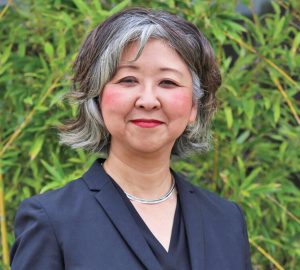Whether you plan to travel the world, explore your passions or just take it easy, retirement is full of endless opportunities. Ensuring you can comfortably live the lifestyle you want takes careful planning—both personal and fiscal. We reached out to Kenneth Bower, CEO and managing director of Clayton Financial Group, for his advice on what it takes to make the most of your golden years.
When is the best time to start planning for retirement?
When people finish college and get their first real job, they usually start with a Roth IRA. It’s a good way to begin saving and setting something aside tax-free. They may also have a 401(k) or 403(b) plan, depending on their employer. I recommend finding an amount of money that is comfortable for you and making it an automatic monthly payment into the account. When people are in their 40s, their financial life gets a little more complex. Working with clients, we start looking at the money they’ve accumulated and use that to create a model to determine what they need to ensure they have the funds necessary to last through retirement. We update that model two to three times a year for peace of mind.
How does long-term care factor in?
It’s definitely an important conversation. A lot of people don’t know what having a long-term care policy means. Maybe they’ve heard it’s expensive or have a relative who benefited from it. I like to go over costs, options for payment and potential pros and cons with clients. For example, if a couple has budgeted for $12,000 a month, what happens to their retirement model if one spouse suddenly requires $10,000 in monthly care. That doesn’t leave a lot for the healthy spouse. Having insurance is one way to take some of the risk off the table, especially since the odds of needing some sort of long-term care are high.
Are there any common mistakes you see?
People often go into retirement with a bucket list. They may want to travel or do renovations to their home, but that can be costly. A good rule of thumb is to spend around 4% of the money you’ve accumulated each year. If you take a trip to Australia and put on a new sunroom in that first year, you may be spending way more. That can potentially create trouble in the long term. Plan to make your money last for decades, build in a safety net, and don’t make a big withdrawal early.
What is the most important thing when preparing for retirement?
People spend a lot of time thinking about retirement, but when it arrives, they suddenly have to fill their days. We encourage people to make a game plan—both financially and for their new lifestyle. Have a strong understanding of your finances, and if necessary, get someone independent and objective who can help. Also know how you are going to stay fulfilled. You don’t want to spend every day bored. If you take a qualitative and quantitative approach, you’ll have a much more successful retirement.
Retirement Checklist:
- Know what you’re going to get from social security. Pension income is becoming less common, but some people still receive it. If that applies to you, also know what your pension is.
- Have a good understanding of how you’re getting your benefits. Most people get health and dental insurance through their employer, but you won’t anymore.
- Set a budget. It doesn’t have to include everything, but you should have a good idea of what your expenses are. Retirement is a great opportunity, but you’re turning off the cash flow spigot. You need to spend responsibly.
- Get your estate planning documents in order. You should have your will, trust, medical directive and power of attorney ready.
- Organize your life, long-term care, house, car and umbrella insurance policies. You don’t want to take risks that might eat away at your net worth.








